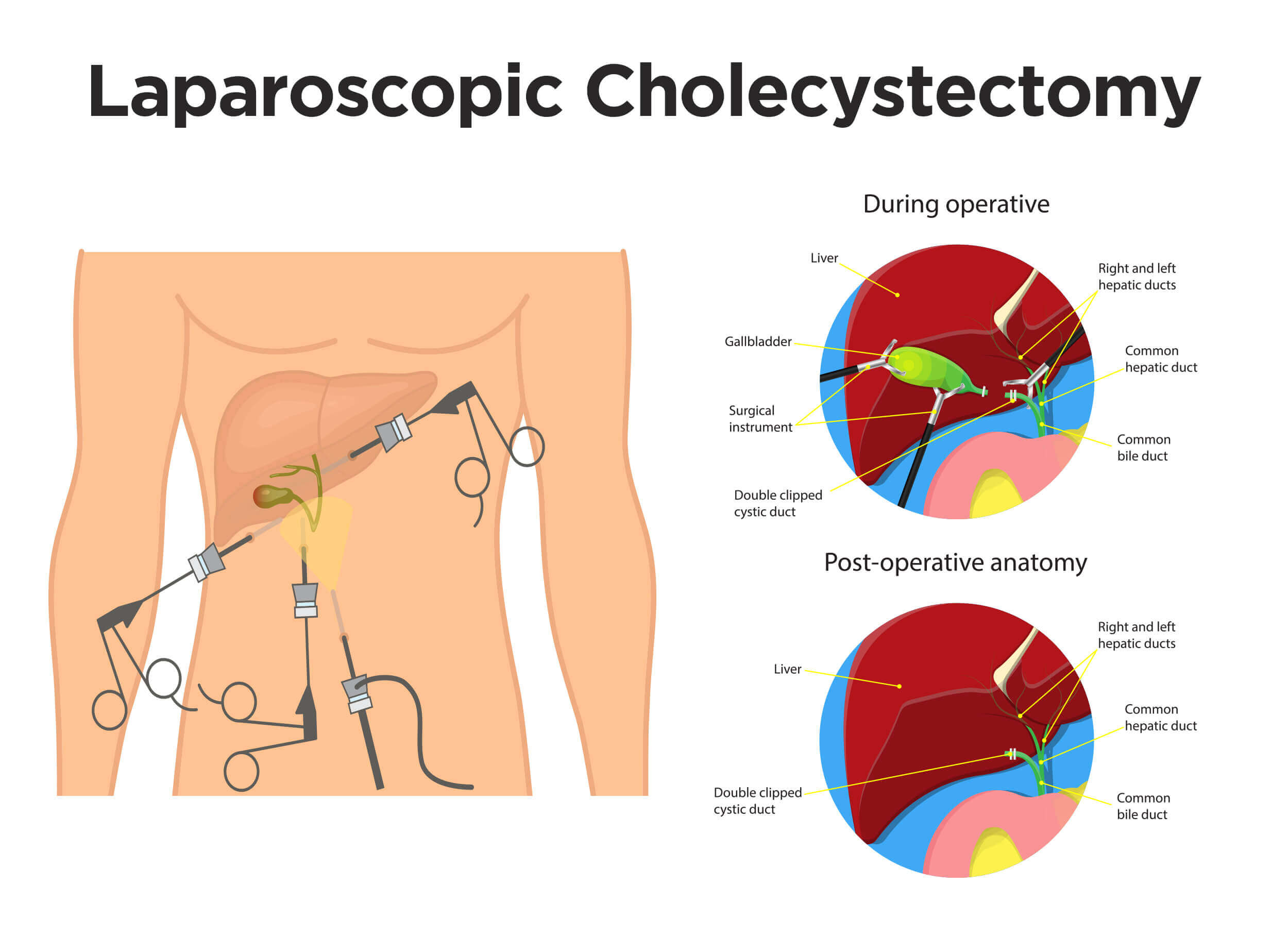How Are Gallbladder Disorders Diagnosed?
After a review of the medical history, diagnostic investigations may be ordered to pinpoint the actual cause of discomfort and confirm the diagnosis, such as:
- Imaging Tests: Ultrasound is the most common first-line test to detect gallstones and inflammation. A CT scan provides detailed images of the gallbladder and surrounding tissues, while Magnetic Resonance Cholangiopancreatography (MRCP) may also be utilised to identify bile abnormalities.
- Blood Tests: Blood tests can measure liver enzymes, bilirubin, or white blood cell levels to reveal any signs of infection, inflammation, or problems with the liver or bile ducts, which can be linked to gallbladder disease.
- Hepatobiliary Iminodiacetic Acid (HIDA) Scan: The HIDA scan uses a radioactive material—injected into the patient’s bloodstream—to assess the emptying function of the gallbladder and detect potential blockages.
- Endoscopic Ultrasound: This test combines endoscopy and ultrasound to produce detailed images of the gallbladder and surrounding structures. It involves inserting an endoscope with a small ultrasound probe at its tip through the mouth and into the upper digestive tract.
What Are The Treatment Options For Gallbladder Disorders?
When Is Surgery Necessary for Gallbladder Problems?
A doctor may recommend gallbladder surgery if you have:
- Repeated gallstone attacks, often causing severe pain
- Persistent gallstone-related symptoms such as nausea, vomiting, and digestive problems
- Complications like gallbladder inflammation (cholecystitis), bile duct infections (cholangitis), or pancreatitis due to gallstones
- Impaired gallbladder function due to gallstones
Dr Wong Jen San is experienced in performing complex keyhole gallbladder surgery, which is complicated and requires excellent surgical skills to manoeuvre precisely. For a surgical care plan with reduced risks and quicker recovery, reach out to our gallbladder surgeon today.
What Are the Treatment Options for Gallbladder Stones?

Non-Surgical Treatment
Medication
: In cases where surgery is not suitable for the patient, medicines may be prescribed. These medicines work by using bile acids to dissolve the gallstones.
Surgical Treatment
Endoscopic retrograde cholangio-pancreatography (ERCP) and sphincterotomy:
This procedure is performed when gallstones have passed into the common bile duct causing obstructive jaundice and infection in the bile duct (cholangitis). It utilises endoscopy technology and X-rays to identify and remove gallstones before or during gallbladder surgery.Cholecystectomy:
The surgical removal of the gallbladder, cholecystectomy is the most effective way to treat and prevent gallstones, and alleviate their symptoms. It is performed via laparoscopic (minimally invasive) surgery even for complicated cases. Sometimes traditional open surgery is needed for the more complex cases.
What To Expect During Cholecystectomy?
Laparoscopic Cholecystectomy
This minimally invasive surgery is typically performed using 3–4 small incisions in the abdomen. A tiny camera helps the surgeon see inside, and the gallbladder is carefully removed through one of the incisions. In some cases, a robotic-assisted technique may be used for enhanced precision.
As a less invasive procedure, laparoscopic cholecystectomy often results in reduced discomfort, shorter hospitalisation, and quicker recovery than open surgery. Full recovery may take about 2 weeks, but most patients are discharged on the day of the procedure.
Open Cholecystectomy
This traditional surgery is necessary when laparoscopic removal is not possible, such as in cases of severe inflammation or suspected cancer. It requires a larger incision (10–20 cm) under the right ribs to access and remove the gallbladder.
Since it is a more invasive procedure, patients are often required to stay in the hospital for a few days, and recovery usually takes about 6–8 weeks.
Small gallstones that do not cause any symptoms can be left alone. Immediate medical attention from a gallbladder surgeon is required if symptoms such as persistent pain for several hours, fever and chills, dark urine and jaundice (yellow eyes or skin) are present
What To Expect After Gallbladder Surgery?
Although every surgical procedure comes with some degree of pain, the discomfort with gallbladder surgery – especially when done laparoscopically – is typically minimal. This means that you will have fewer and smaller incisions with faster recovery. Most patients are discharged on the same day or the day after the surgery.
At our specialist clinic for the management of gallbladder diseases, you can be assured of seamless and supportive services.
Should you experience symptoms of gallbladder problems or wish to have a detailed assessment, please leave us a message and we will be in touch with you as soon as possible.

